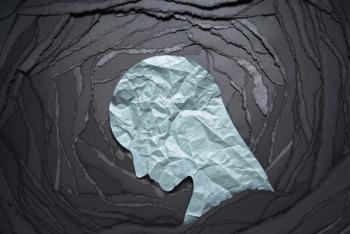
- February 2020
- Volume 87
- Issue 2
Help Teens Who Struggle With Depression
As accessible health providers, pharmacists are well positioned to assist young people who have mental health issues.
Pharmacists, because they are perceived as accessible, knowledgeable, and nonjudgmental, are in a unique position to identify and help teens who are struggling with depression and other mental health issues.
Helping teens with depression is a 3-step process: Identify the individuals and refer them for an official diagnosis; recommend treatment for immediate relief of symptoms, if necessary; and know which drugs are approved by the FDA for teens. In addition, the pharmacist needs to watch for adverse effects (AEs) to keep patients safe and mitigate risk factors and/or solve underlying causes of depression by recommending a medical doctor or skilled counselor.
First, look for signs that someone is experiencing depression. These include deep sadness, excessive crying or other negative emotions, feelings of hopelessness or being trapped, lack of interest in doing the things that once brought happiness and pleasure, and withdrawal from family and friends.
The US Preventive Services Task Force (USPSTF) recommends using 2 diagnostic tools: the Patient Health Questionnaire for Adolescents and the primary care version of the Beck Depression Inventory.1
Pharmacists who suspect that a teen is depressed can ask them or their parents how they are doing, in a compassionate and nonjudgmental way. Specifically, say, “Over the past 2 weeks, have you felt a lack of interest and pleasure in doing the things that would normally make you happy?”
Pharmacists can also ask point-blank: “Do you feel hopeless or sad?”
After identifying these teens, the pharmacist should give them hope. Tell them or their parents that there are medications that can help immediately and discuss the underlying situations contributing to the condition.
The second step is recommending drug treatment for immediate relief.
When recommending antidepression medications for teens, consider the lack of long-term data in this population group. Teens are still growing and developing physically, and it is not known what type of permanent effects can occur.
The FDA has approved some drugs for use in children and teens (see table).2,3
The FDA requires that all antidepressants include a boxed warning concerning the increased risks of suicidal behavior and thinking in children, adolescents, and young adults up to age 24. Other AEs to consider are an increased risk of seizures, serotonin syndrome, and a risk of cardiac arrhythmias with fluoxetine.
Regarding natural supplements, omega-3 fatty acids and S-adenosylmethionine remain under investigation for their role in treating depression. St John’s wort is often used to treat depression but can have dangerous drug interactions and other AEs.
Finally, when it comes to mitigating risk factors and/or solving the underlying causes of depression, the body-mind connection is actually a 3-way relationship with our physical health, social situations, and thoughts. Depression is a sign that at least 1 of these areas needs attention. A medical doctor could rule out a physical condition.
Resolving depression involves more than just maintaining positive thoughts and taking pills. It also involves coming to terms with, resolving any contributing risk factors for, and understanding depression.
According to the USPSTF, risk factors for depression in adolescents and children include being female, obese or overweight, or older; chronic medical illness; a family, especially maternal, history of depression; other behavioral or mental health problems; a prior episode of depression; and, in some studies, being Latina/Latino. Other psychosocial risk factors include childhood abuse or neglect; exposure to traumatic events, including natural disasters; family conflict; loss of a loved one or romantic relationship; low socioeconomic status; poor academic performance; and uncertainty regarding sexual orientation.1
Teens are finding their way in the world. They are struggling to understand life in general, the people around them, and themselves. They may feel hopeless and trapped in difficult situations. A trained professional counselor can help solve these problems and give them life skills to cope with difficult situations in the future.
Gunda Siska, PharmD, is a staff hospital pharmacist who assists doctors and nurses with drug administration, dispensing, and prescribing, as well as independently dosing and monitoring highly dangerous and toxic drugs.
REFERENCES
- Depression in children and adolescents: screening. US Preventive Services Task Force website. https://www.uspreventiveservicestaskforce.org/Page/Document/UpdateSummaryFinal/depression-in-children-and-adolescents-screening1. Updated February 2016. Accessed December 27, 2019.
- Dwyer JB, Bloch MH. Antidepressants for pediatric patients. Curr Psychiatr. 2019;18(9):26-42F.
- Antidepressant medications: use in pediatric patients. Center for Medicare & Medicaid Services website. https://www.cms.gov/Medicare-Medicaid-Coordination/Fraud-Prevention/Medicaid-Integrity-Education/Pharmacy-Education-Materials/Downloads/ad-pediatric-factsheet11-14.pdf. Accessed January 30, 2020.
Articles in this issue
almost 6 years ago
Interactives: Case Studies (February 2020)almost 6 years ago
Clinical Pharmacology Update: Xenleta from Nabriva Therapeuticsalmost 6 years ago
Can a Patient with HIV Maintain a Lawsuit?almost 6 years ago
Study Results Link Postpartum Depression to Inflammationalmost 6 years ago
Clinical Evidence Exists for Allopregnanolone-based Treatmentsalmost 6 years ago
Pet Peevesalmost 6 years ago
Nonprofit Addresses Commonsense Prescribingalmost 6 years ago
Counsel Patients About Drug-Induced Nonallergic Cough and Rhinitisalmost 6 years ago
Advanced Education and Training Opportunities Increasealmost 6 years ago
Can You Read?Newsletter
Stay informed on drug updates, treatment guidelines, and pharmacy practice trends—subscribe to Pharmacy Times for weekly clinical insights.


























